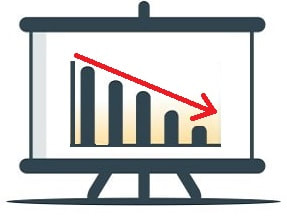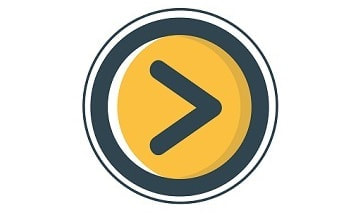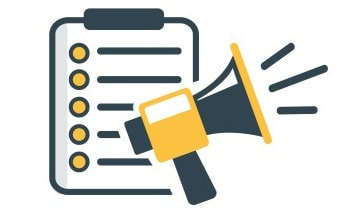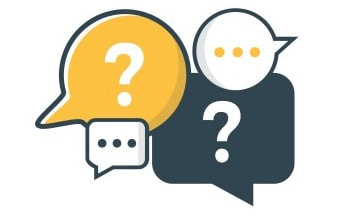How to Pay Off Credit Card Debt (with an Average Salary)
Get back in control of your life by taking action and repaying credit card debt. Our guide outlines everything you need to know and helps you step by step to overcome the debt that does nothing but cost you money.
Updated 15 April 2023
Summary:
To help you get debt free, our guide covers:
MoneyHub Founder Christopher Walsh explains this guide in a dedicated video:
- Credit debt may seem impossible to pay off, but it is not - this guide lists everything you need to do to get rid of expensive personal debt.
- We've aimed our proven methods at average income earners. We believe it is not your salary that makes you rich or poor; it's your spending habits.
- Our approach lets you get familiar with where your money goes, cut costs and use the spare money to pay off credit card debt.
- Credit card debt can be chained to you forever - it's designed to make the banks lots of money. You'll only be able to pay it off by cutting back on expenses while you make repayments.
- We believe you can pay off your credit card debt by following our suggestions - we explain everything you need to know below to make it happen.
- No matter how much money you make now or later, you need to be responsible with your money. Unfortunately, in New Zealand, so few people have an emergency fund or any savings.
- This guide is designed to get you out of credit card debt and develop new habits that will help you manage your finances for the rest of your life. It may be unfamiliar or comfortable, but every step we have listed is proven to work.
To help you get debt free, our guide covers:
- Know This First: How to Use an Average Salary to Pay Off a Credit Card
- Five Essential Steps to Pay Off Credit Card Debt
- Frequently Asked Questions
MoneyHub Founder Christopher Walsh explains this guide in a dedicated video:
MoneyHub Founder Christopher Walsh shares his views about paying off credit card debt:
|
"Credit card debt is a rip-off. I've written about it in the media (see this Stuff.co.nz article from November 2021), but getting rid of the debt can be tough without a plan of action. I want to make it easy and let people know that they can get debt-free without a windfall or a pay rise. You can be an average earner and sink the iceberg of debt you have amassed.
Right now, New Zealanders are spending record amounts on credit cards. However, credit card interest rates charged by banks and other lenders hurt the vulnerable with 20%+ p.a. costs. The best time to repay this debt is today. "Credit cards are money machines for banks and are incredibly profitable. However, the debt they create can haunt people for years. I believe the only sustainable way to pay off a credit card is to consider credit card debt's psychological, mathematical, and pragmatic aspects. It takes more than paying off 5% of a credit card's closing balance each month to clear the balance. Most New Zealanders, at least in the short term, can't change their salary. But they can change how they spend their money – and that's what I want to make clear by publishing this guide. It doesn't matter how you built up the debt – what matters is how you get rid of it. Unfortunately, New Zealand is an expensive place to live, and the stress and guilt of carrying around credit card debt aren't worth the energy. However, the only person that can help is yourself, and it's not an impossible task to pay off credit cards". |
Christopher Walsh
MoneyHub Founder |
Know This First: How to Use an Average Salary to Pay Off a Credit Card
Important: We suggest you consider applying for a balance transfer credit card to reduce your 20%+ p.a. interest rate to around 0% to 2% p.a. This will allow you to repay your debts faster as they aren't growing as fast.
- The average New Zealand salary is $56,160. The monthly after-tax salary is $3,792 per our PAYE calculator.
- If you have a credit card debt of $5,000, and you want to repay it over 12 months, you'll need to put $417 per month ($5,000 / 12 months) towards your credit card bill, assuming there is no interest.
- $417 a month is around 11% of your monthly after-tax salary.
- $417 might seem like a lot of money per month, but broken down, that's around $100 a week or $14 a day.
- $14 a day might look like preparing your lunch at home for $5 instead of paying $20 for lunch out at a cafe. $100 a week might look like not going out that extra night of the week for social occasions where dinner and drinks can easily accumulate to $100.
- We understand that it is hard to change the way you live, but for your credit card debt to be repaid, you must cut back on non-essential costs. Most costs outside of rent/mortgage, power, broadband, basic food, transport, and phone are non-essential.
- To understand where you've been spending, you'll need to look over your bank statements. A whole year's worth of statements should cover 99% of your spending, but even 1-2 months of statements can give you 90% of the picture. We recommend going through it line by line and challenging every purchase.
- To ensure you can continue making smart money choices, we suggest using a budgeting app and maintaining self-control. You will find yourself saying "no" a lot more to things such as social occasions, but with the time you find yourself having from not going out, you can save even more money by engaging in things like meal prep - a cheap and time-conscious way to save money and often end up eating healthier!
- If you have a $10,000 credit card debt, it is still possible to repay your balance. It's always possible; it just will likely require more time, more self-control, and more sacrifice. But the numbers work in your favour - you can do this if you're committed to living debt-free by keeping on track month after month.
Common Question – Should I get out a debt consolidation loan to help repay my credit card debt?
- We believe the best way to solve your debt issues is by changing your behaviour with spending.
- Also, the solution to debt is not usually taking on another debt.
- Debt consolidation loans are popular, but they can also be expensive, with interest rates and fees not dissimilar to those charged by an everyday credit card.
- Lastly, there is a risk that shopping around for debt consolidation loans will lead to further inaction and not solve your credit card debt.
- With this in mind, the best approach, in most cases, will be to change your habits and cut down on costs. Keep reading below to find out what you need to do.
Five Essential Steps to Pay Off Credit Card Debt
Know this first - consider a balance transfer credit card
- If you have a $10,000 debt, it's costing you around $2,000 to $2,500 a year in interest and fees. These interest costs add up – we believe the best thing to do is consider applying for a balance transfer credit card.
- In a nutshell, if you're approved, all the debt is moved from whatever you're paying now in interest to 0% p.a. (or close to it) for a set number of months (usually 6 to 24).
- You can then chip away at the balance without interest costs being added on top.
- First, however, you'll need to cancel the existing credit card to avoid going into more debt once the balance is cleared. However, it's impossible to repay your credit card debt without controlling your spending ongoing.
- The following steps work with or without a balance transfer credit card, although at 0% p.a. (or close to it) it's easier and faster to repay debt.
Understand your money, putting together your financial details and getting a budgeting app to track your spendingTo get rid of credit card debt, you need to become very familiar and comfortably with your money. The more you know (and the more fears you're prepared to overcome), the better you can get control of your finances.
Here's what to do:
Once you know these amounts, you know how much you have to pay back and what your essential outgoings are. Then comes the fun part - getting a budgeting app. Our guide has a shortlist of the most popular apps used in New Zealand, and to speed things up, we suggest considering mybudgetpal, which is a free app, or Pocket Smith (a paid service). The time you spend setting up the app is an investment and will create a valuable asset on your road to financial recovery and wellbeing. Budget apps let you track every dollar you spend, which forces you to become aware (and then relive) exactly where your money goes. Top tips:
|
Cut down monthly expensesNow that you can see your money, the aim is to reduce the amount of money you spend so you allocate more of your income to debt repayment. We suggest the following considerations:
1. Revisit your TV subscription costs These services are in every corner of New Zealand now, so it's likely you have at least one – many people have multiple. Our view is that you can live a fulfilled life without endless TV opportunities. The best situation would be to cancel all of them and replace them with free alternatives, thus savings around $1,000 a year. We suggest reading our free streaming services guide to help you keep entertained without the high ongoing costs. MoneyHub user Kathy shares her experience: "We long stopped watching Amazon Prime or the Sky movies channels but still kept paying for them. I felt guilty not using what we paid for, and it wasn't until we cut them off did I realise what a waste of money it was. I used your list of free streaming services, and that works better for us. Best of all, nothing gets charged on my credit card now". 2. Re-shop your phone plan Does your usage justify the monthly cost, or could you downgrade your plan? Many people pay too much out of laziness, but they never miss the extra data and minutes when switching to a cheaper plan. MoneyHub user Dana shares her experience: "I use WIFI at home and work but for some reason thought it was appropriate to be paying for unlimited data on my mobile plan. I knew I was at best using 2 GB a month, so I dropped the plan down to a $15 a month option (down from $60+). I didn't notice any difference and wasn't inconvenienced in any way. The ongoing savings are most noticeable too". 3. Re-price your insurance Knowing if what you're paying is fair can only be determined by shopping around. Our research shows a big range of prices for car, home and contents insurance. It's not unrealistic to save around $40 to $100 a month on insurance costs if you're a low-risk customer (i.e. safe driver, low-value car, no recent claims etc.). Switching companies will lead to ongoing savings in many cases. |
MoneyHub Founder Christopher Walsh shares his insights about cutting down your monthly costs:
|
"Repaying credit card debt is only going to happen if you commit to cutting costs. But, unfortunately, many people are reluctant to change their ways, which keeps them in the debt trap as they don't have any spare money to pay off the debt.
You'll be able to make serious inroads into your debt by changing how you do things. Remember, credit card companies and banks want you to remain in debt, which makes them a lot of money. By reducing your costs, all the spare money you save can go towards the debt balance. It's up to you to make this happen - the more obsessed with costs you become, the faster you'll be debt-free. It does require you to make a significant mindset change. This will be unusual at first, but your commitment to cut costs and switch providers will prove to be invaluable as you can now decide where and how to spend your money". |
Come up with a payoff plan that works for youBefore you start repaying your credit card debts, it's important to put together some framework. We suggest the following:
1. Put together an emergency fund. Creating a small but reliable savings account is essential to avoid the need to rely on expensive credit. $1,000 is a good amount and likely to be a fraction of your total credit card debt. This emergency fund is for absolute emergencies, not ongoing costs like presents, entertainment and ongoing car-related costs. By keeping it essential-only, there's a reduced risk of it being spent on temptations. Our guide to emergency funds has more details. 2. Create a budget that you can stick to The best starting point is working out what you want to repay on your credit card every month. Our suggestion is the following:
For example, if your debt balance is $10,000, we suggest considering paying around $834 a month or $1,000 a month, depending on your credit card interest costs. These numbers will sound high, especially if you've been used to paying the standard 3% to 5% minimum repayments (as outlined here). However, this amount means you can seriously start to shake off the debt. The alternative is paying the minimum balance and $50 here, $100 there etc., which won't make much progress. To be debt-free, you have to be aggressive. 3. Make the repayments and budget your lifestyle around those set outflows Once you know how much debt you have to repay per month, the next step is to work out what you can spent outside of essentials (see step 4. below). When you have less to spend, it's easy to determine where you find value and happiness and where you see money wasted. Every other dollar can then be happily applied to clearing your debt. |
Controlling your spending month after monthAs the months go on, it's likely that paying 1/10th of your debt every month won't always be achievable. That's perfectly normal – the good news is that you will make progress each month as long as you make a repayment. All that matters is that you regularly set aside money to bring the balance down month after month.
Have a repayment goal and keep the momentum going We believe it's possible to repay a $5,000 to $10,000 balance as an average earner in 12 months. The bigger the debt, the less "fun" you're likely to have. But it's essential to have some "fun" money to enjoy life; otherwise, the lifestyle change will likely be too unnatural and hinder your debt repayments. Suggestions for low-cost entertainment include:
The important thing is to keep the repayment momentum going. There's no point paying off $3,000 (on a $5,000 balance) only to blow out again and end up where you started. Repaying credit card debt is a psychological challenge that needs willpower and discipline. However, despite the pain points, the freedom that comes when you become debt-free is priceless. Generally, the journey is as follows: The Beginning – You hit the ground running, cutting down costs and challenging your everyday spending. You get familiar with your spending (looking at bank statements online and/or using a money/budgeting app), cut up your old card, apply for a balance transfer (or keep the debt with the card) and focus on aggressive repayments. In the first 1-3 months, you manage to make some serious contributions towards your credit card debt. After that, you carry on doing the same, finding that spending less doesn't cause you to be any less happy. On the contrary, you may notice that you're a lot happier without the stresses of regular shopping and general consumption. The Middle – You continue to enjoy hitting the debt repayment milestones. You may miss some repayments as some months will be better than others, but overall the debt continues to drop. Your focus is on continuing to eliminate expenses by using a budget app and exploring your bank transaction history list. The more you understand your money, the less of it you'll use unwisely. The End – Eventually, you'll make your last repayment. It will have taken self-control and the willingness to miss out on some minor social events. However, being debt-free is an invaluable feeling. You'll also have a new set of budgeting skills, a new philosophy as to how to spend money, and, most importantly, a new perspective on what you value. This will set you up to be careful with your financial decisions and avoid your past mistakes. |
The aftermath (and staying debt free)As you continue to make regular debt repayments, you will most likely notice one or more of the following things:
|
MoneyHub Founder Christopher Walsh shares his insights about all the help available and why it's all worth it
|
"You can achieve being debt-free. Getting into debt is easy; paying it off will be incredibly satisfying. Every week, we hear of many New Zealanders committing to live a 'financially aware' life and cutting up the cards that hurt them the most.
There's a lot of support around to help you repay the debt. If you need someone to hold your hand and get you sorted, you won't regret the help. I suggest looking at FinCap, which offers hundreds of free-to-use financial mentors around New Zealand. I also hear great things about Christians Against Poverty which has a proven track record in getting people sorted. Whatever you decide and however you get there, paying off credit card debt is a feeling so positive you'll have wished you did it sooner. No one even regretted becoming debt free". |
Frequently Asked Questions
Should I stop contributing to KiwiSaver when I am repaying my credit card?
It's reasonable to think that this will repay your debt faster. However, unless you're self-employed, you'll be forgoing a bonus of 3% of your salary paid by your employer into KiwiSaver, as well as the $521 annual government top-up (if you don't meet the contributions threshold). Arguably, suspending KiwiSaver would repay your debt faster, but doing so creates a risk that today's debt repayment harms your future.
Because KiwiSaver is a robust savings scheme and you'll benefit from the money either when you turn 65 or withdraw to buy a house, both of which are significant times in your life. The money is most likely better used then. Right now, you would probably be better off financially by cutting back on other expenses while keeping up with KiwiSaver contributions.
Because KiwiSaver is a robust savings scheme and you'll benefit from the money either when you turn 65 or withdraw to buy a house, both of which are significant times in your life. The money is most likely better used then. Right now, you would probably be better off financially by cutting back on other expenses while keeping up with KiwiSaver contributions.
What budget app is the best?
There are many to choose from. Our best budget apps guide has everything you need to know. The best budget app for you is one that you like to use and that holds you accountable. Many New Zealanders like apps that let you see your spending based on graphs so you can change your behaviour when you overspend.
I'm a low-earner with big bills – can I repay my credit card debt?
Yes – everyone is capable of repaying credit card debt. What matters is that you do it consistently and sustainably, i.e. you don't pay off a bunch of credit debt only to later take more on when you can't manage your finances. Whether you earn $30,000, $80,000 or more, every change in behaviour and spending habit will help pay off debt (and keep it from happening again).
If I get a windfall, should I save it or pay off debt with it?
The best approach depends on what suits your immediate needs. For example, if you'd prefer to have some money set aside for emergencies, keeping it in a savings account is arguably a good idea. However, if you're comfortable with your financial situation and want to get the debt cleared as quickly as possible, using the windfall in that way will help you achieve debt-free goals faster.
Once I pay off my credit card debt, should I overpay my student loan?
Student loans don't incur interest charges unless you live overseas, unlike credit card debt (and personal debts in general). Our student loans guide has more details. As such, it may be worthwhile saving and/or investing your money if you plan to live in New Zealand, at least in the medium term. This is because your student loan repayments will be regularly deducted from your salary.












